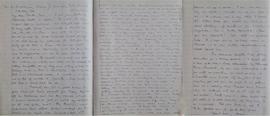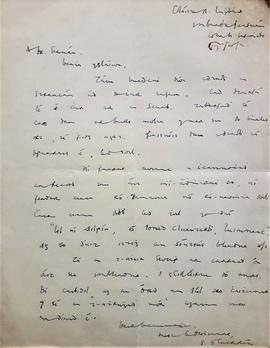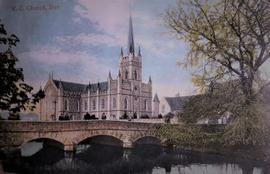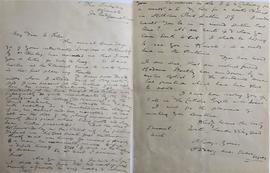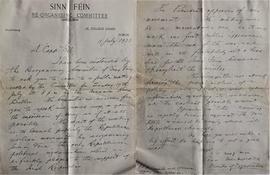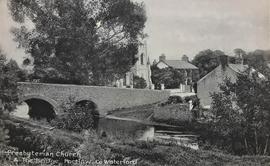- IE CA CP/3/1/1/30/2
- Partie
- 13 Dec. 1944
Fait partie de Irish Capuchin Archives
Copy letter from T.J. Kiernan (1897-1967), Irish Minister to the Holy See, to Fr. Senan Moynihan OFM Cap. Kiernan refers to the deprivations of life in Rome during the war. He writes 'It will be long before life is normal. We thought life would be easy after June (air-raids in March on 7th, 8th, 9th – 3 times – and 18th; the last was beside us and the house emptied quick enough ... We had no water for months and no electricity from 4th June. But now the difficulties are all the open robberies on the streets – the bandits are armed and strip the victims as clothes and boots are so valuable'. Kiernan also gives news of his family and refers to the experiences of the Irish community in Rome.

